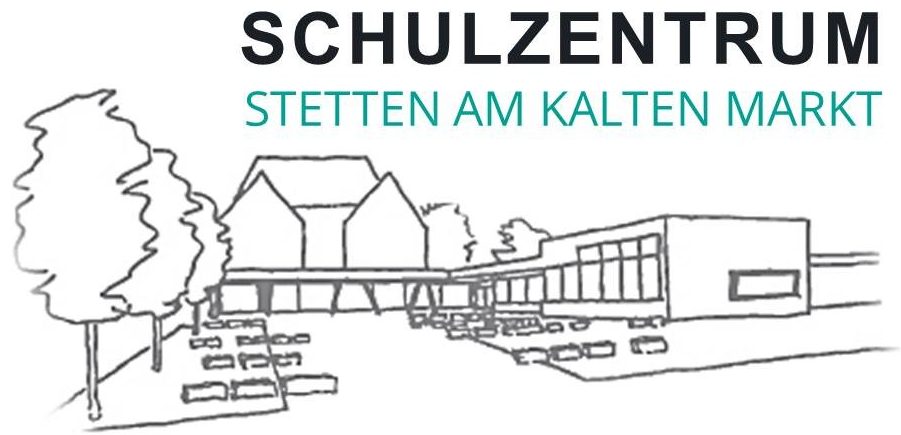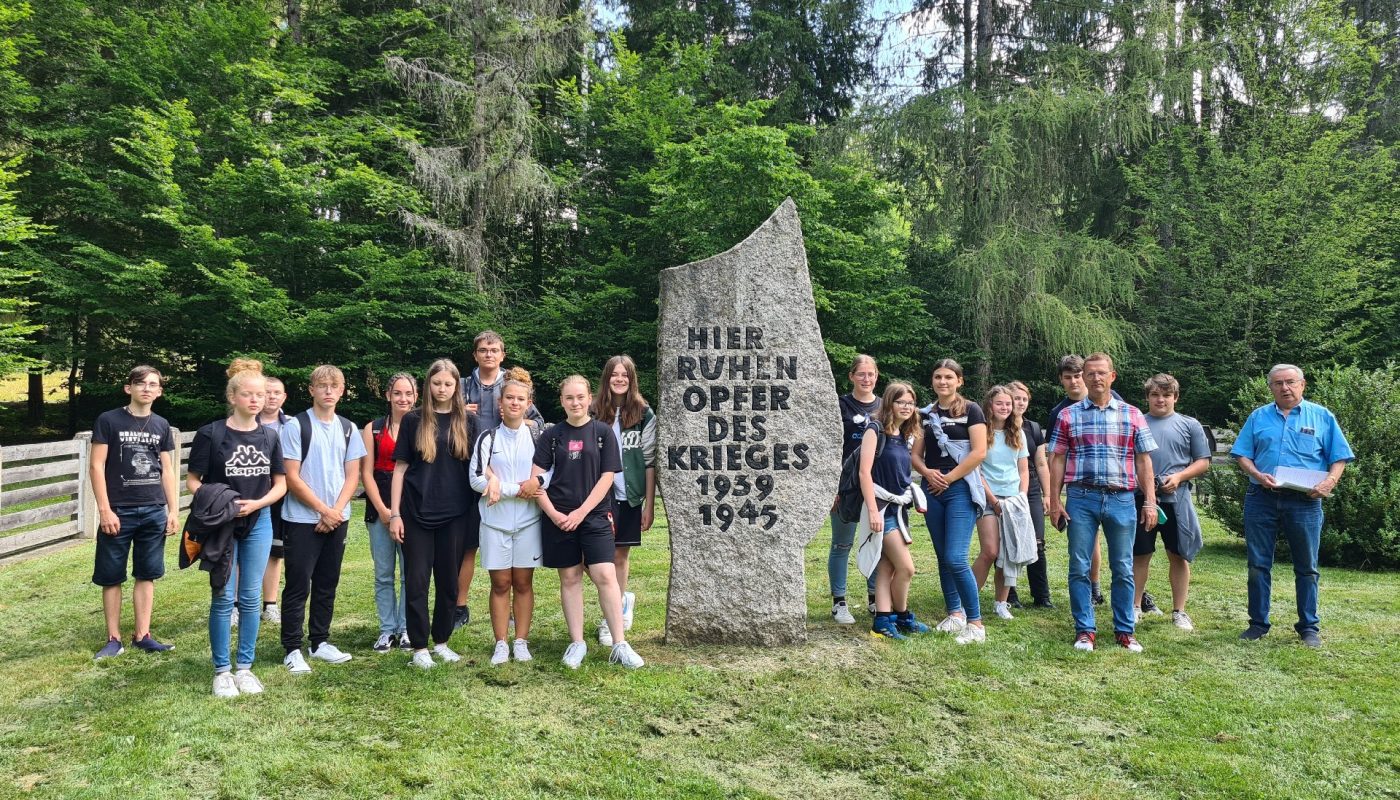It is a dark period of local history that the pupils of the religion group 9 of the Stetten am kalten Markt school centre dedicated themselves to when they visited the Heuberg concentration camp memorial site last Wednesday. Knowing about what the common German past has brought forth and how it affected their own school is not only a scholastic but also a personal concern for the learning partners.
School chaplain and religious education teacher Martina Straub, who had initiated the learning walk, accompanied her religious education group together with Konrektor Jürgen Lebherz to a ceremony at the memorial in the Russian cemetery.
Here they are welcomed by Walter Sambil, local chairman of the SPD local association, which looks after the memorial. He is always pleased to let young people know something about the history of the memorial.
The atmosphere in the open air is subdued, almost reverent. The young citizens light their peace candle, which they made in class with their teacher Mrs Straub. They let the words of the prayer for peace, which is read out, sink in. It connects today's learning walk with the peace board they recently created in religion class, where they had cut out peace doves from impulse texts in the Bible and positioned them around a meditation on peace.
"But if you want peace, you have to do it yourself", it says. The stark contrast between these words and the regime of injustice of the Third Reich is something the pupils now experience in all clarity.
National Socialist propaganda defined disagreeable opponents of the government as criminals and interned them at Heuberg, the first German concentration camp for political prisoners. Here, in 1933, more than 2000 members of other parties as well as dissenters were held and subjected to inhumane treatment - the most prominent among them the later SPD leader Dr Kurt Schumacher.
The otherwise lively group is suddenly quiet. And unanimous in the fact that the historical responsibility of every citizen is not only to keep memories alive, but to commit themselves to free democratic action.
Supporting this is a central concern of the Stetten a.k.M. School Centre: "History is always there where we are at home and where our pupils grow up. Thus, the significance of this place of learning on the doorstep of the Stetten a.k.M. School Centre is to be emphasised when it comes to the topic of National Socialism. It sensitises the young people to this local perspective," emphasises Jürgen Lebherz.

